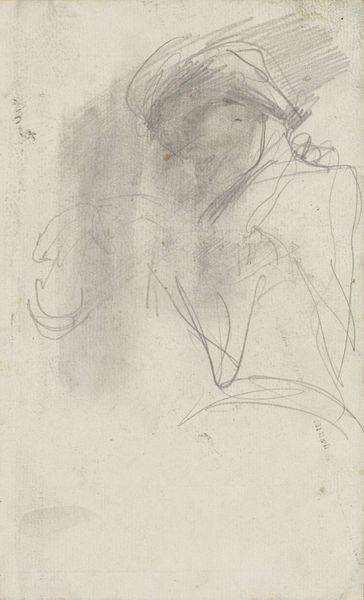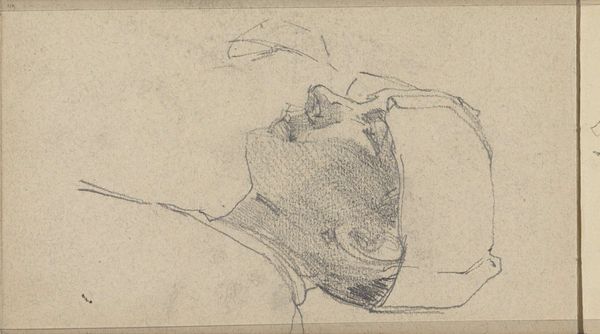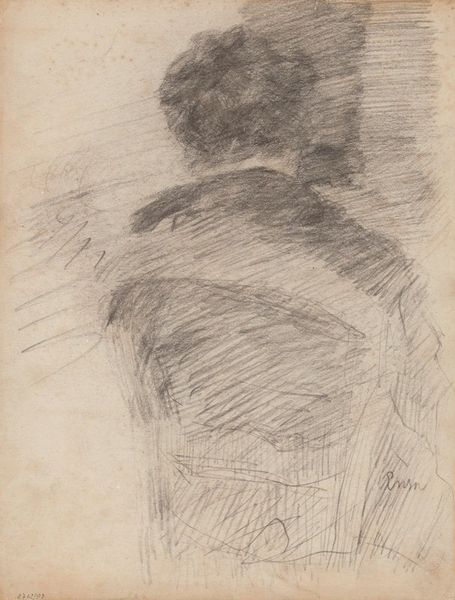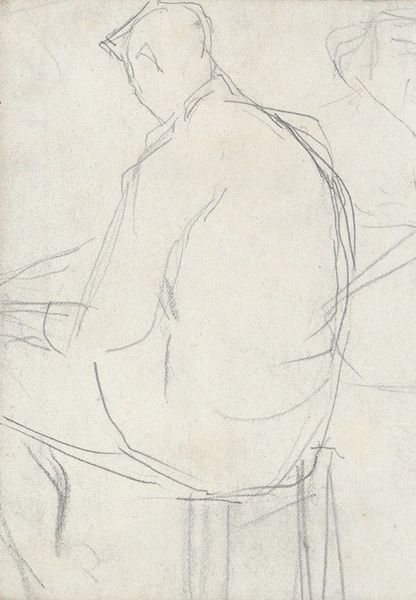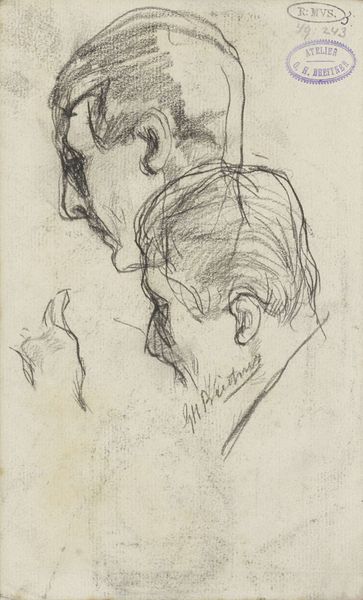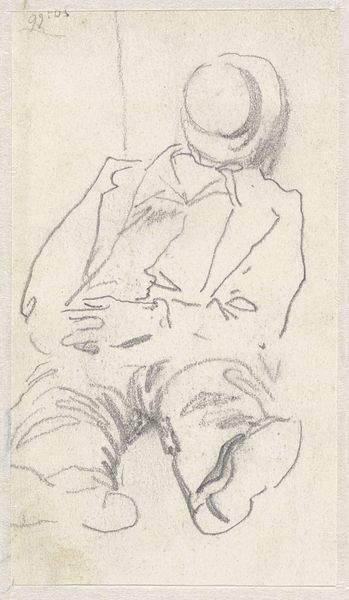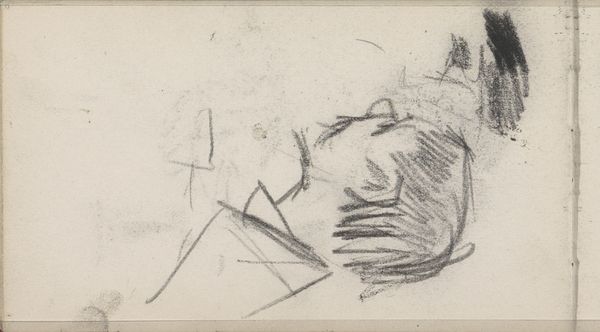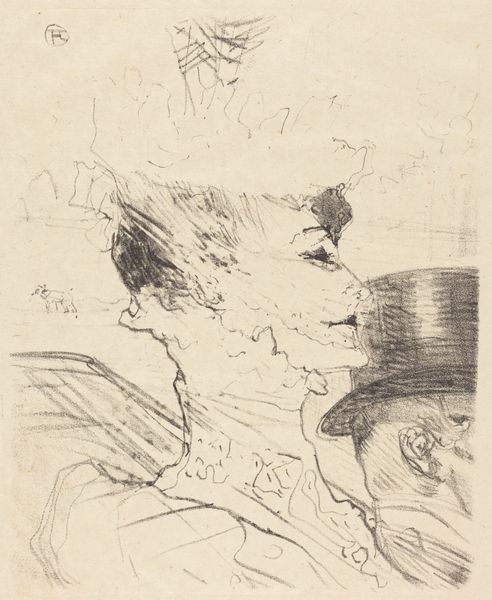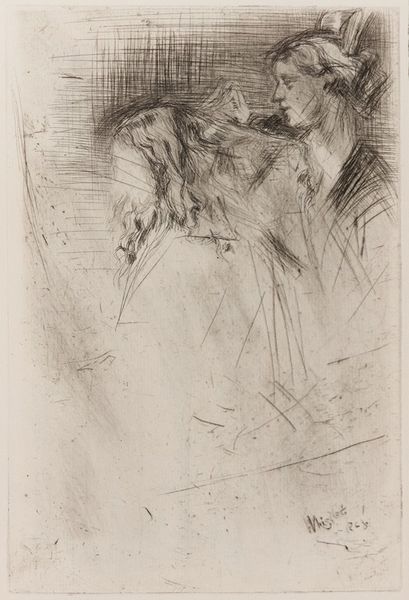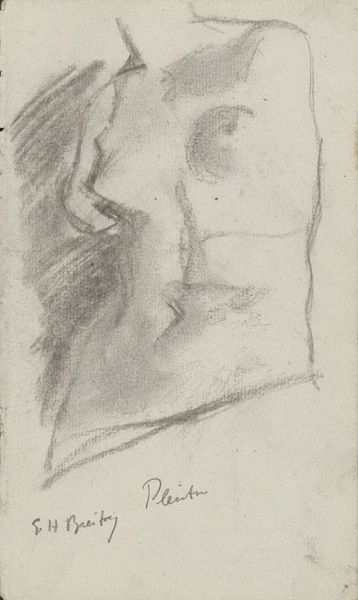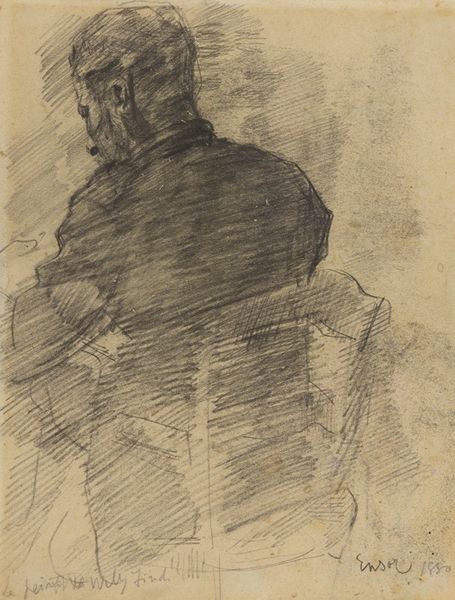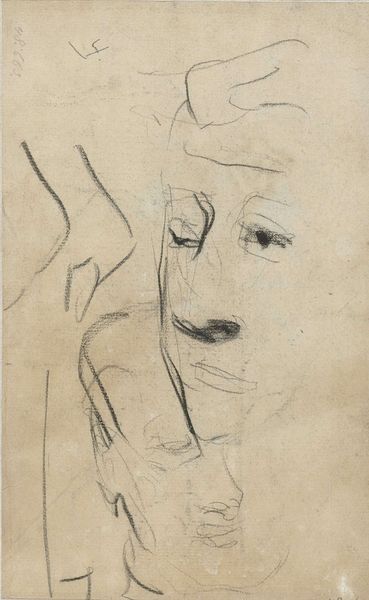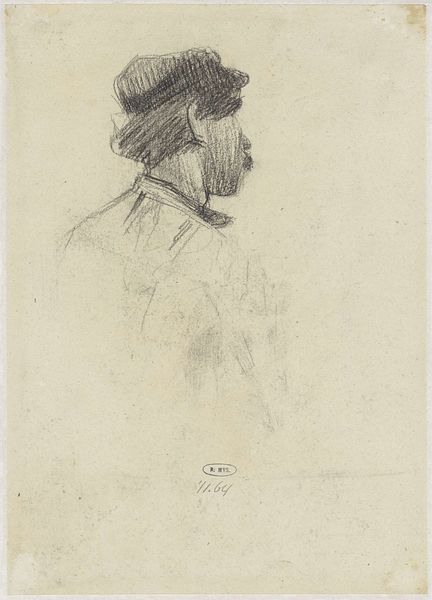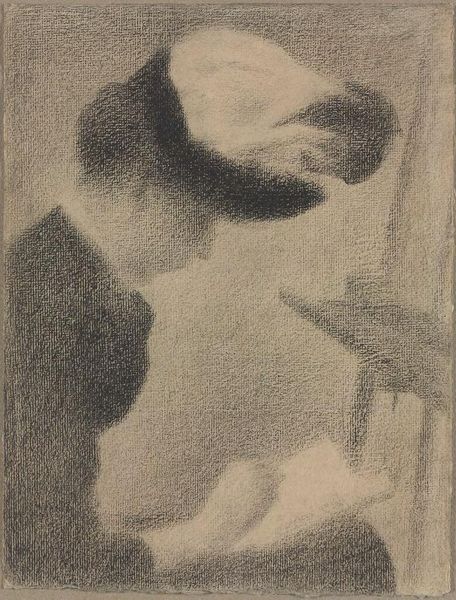
drawing, pencil
#
portrait
#
pencil drawn
#
drawing
#
impressionism
#
pencil sketch
#
pencil drawing
#
pencil
Dimensions: height 188 mm, width 115 mm
Copyright: Rijks Museum: Open Domain
Editor: So, here we have "Buste van een kind, mogelijk een jongen," or "Bust of a child, possibly a boy," by George Hendrik Breitner, made sometime between 1887 and 1891, using pencil on paper. I find the sketchiness of it really captivating. What do you see in this piece, looking at it from a formal perspective? Curator: The immediacy of the medium—pencil—invites us to examine the artist's hand, wouldn't you agree? Note the diagonal hatching which describes form and volume through varied tonal values, but also establishes spatial relations. The relative absence of contour invites questions of what exists merely in suggestion and what has been deliberately suppressed by the artist. Editor: That's interesting, about what's *not* there. So, what is the relationship between the sketchiness, the "absence", and the impact of the final piece? Curator: The perceived "sketchiness," while indeed descriptive of the surface effect, ironically performs as a tool of heightened presence, as the figure’s volume emerges from the planar surface, not despite, but precisely because of, these self-declared 'absences'. Editor: It's amazing how much information is conveyed with such sparse marks! I also like how it plays with ideas around form. Curator: Indeed. It serves as a powerful example of how line, tone, and the absence of both can converge to shape a coherent representation and generate affect. Editor: Well, I definitely see the form differently now, by appreciating how it's almost more about the lines than what they explicitly represent. Curator: Agreed, the intrinsic qualities speak volumes here. It challenges conventional ideas around portraiture and the purpose of portraiture in general.
Comments
No comments
Be the first to comment and join the conversation on the ultimate creative platform.
